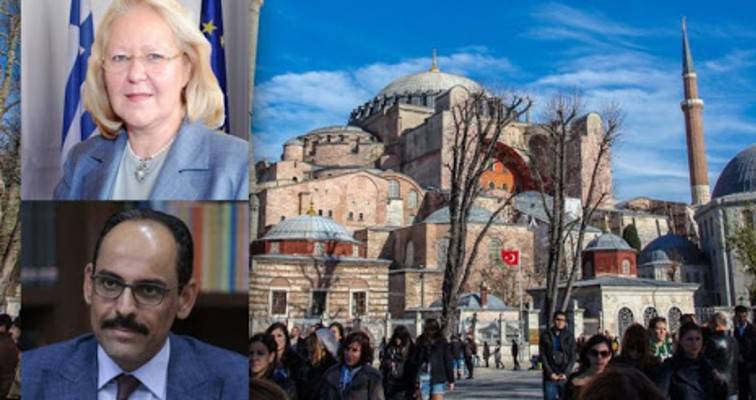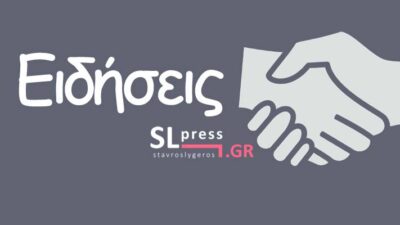Antonia Dimou: Neo-Ottomanism: One man, one vote; Erdogan’s the man and he’s got the only vote
17/07/2020
“Democracy is like a tram. You lead it to the stop you want and then you just get off “. This statement belongs to Tayyip Erdogan, when he was mayor of Istanbul twenty years ago. It demonstrates the conscious strategy he has skillfully forged, instrumentalizing democratic institutions, with the aim of reviving neo-Ottomanism and the Islamization of modern Turkey. The victim of this instrumentalization is democracy in Turkey itself, as Erdogan has long since got off the “democratic tram”.
The silencing of the press and journalists, the violation of human rights by the arrest, imprisonment and confiscation of property of thousands of alleged supporters of Imam Gulen’s Nurj movement, dissidents and even members of opposition political parties. Turkish-Islamic government.
Turkey ranks 154th out of 180 countries in the global Press Freedom Index, as more than 120 journalists are held in Turkish prisons. At the same time, it is estimated that the Turkish government controls about 95% of the media.
In an organized effort to suppress the last voice of the press, the Turkish parliament announced (on 6 July this year) the discussion and adoption of new legislation, which will allow government control of social media, as well. The reason was an opinion article, which was reproduced on social media, criticizing the daughter of the Turkish President, Ezra and her husband Berat Al-Bayrak, who is acting Minister of Finance.
The silence of social media
Under the new legislation, government control will be exercised through the ability provided to the Turkish Information and Communication Technologies Authority (BTC) to block WhatsApp, Telegram, Facebook, Twitter and Netflix. Social networking companies will also be required to store user information and be represented in Turkey.
But government control goes even further. The new legislation will authorize the Turkish Information and Communication Technologies Authority, as well as the gendarmerie, to inspect websites at the offices maintained by social networking companies in Turkey. The Turkish Information and Communication Technology Authority will also be able to impose fines on companies that do not remove material posted on social media and for which they have previously received notice (either from the Turkish Authority or at the request of users).
The provisions of the forthcoming Turkish legislation on social media do not come as a surprise. It should be noted that, as early as 2016, Turkey had blocked access to Wikipedia and closed about 170 media outlets, including almost all Kurdish-language media, undermining the existence of free and polyphonic information. The gradual overthrow of any democratic regime, as in this case in Turkey, takes place through the control of freedom of the press, freedom of speech and the imposition of censorship, as a means of banning ideas and perceptions in printed newspapers and television broadcasts.
In a peculiar situation, Turkey is rapidly sliding down the slippery slope of clamping down on freedom of the Press, not hesitating to use a democratic institution (in this case the Turkish parliament) to legitimize the silencing of freedom of expression on social media, circumventing, in this manner, democracy itself.
Mass human rights violations
With the institution of parliament as a vehicle, after all, Erdogan has legitimized the persecution of opposition MPs, firstly with the unconstitutional lifting of the immunity of 55 of the 59 MPs of the pro-Kurdish HDP (Halkların Demokratik Partisi) party in 2016, which led to former party leader Selahattin Demirtas being arraigned on terrorism charges.
The persecution of political opponents continues unabated, as seen in the Turkish parliament’s decision on June 4th this year, following an initiative by the ruling Justice and Development Party (AKP) to lift the immunity of CHP MP Enis Berberoglu (who belongs to the Republican Popular Party CHP on charges of espionage) and MPs Leila Gouven and Musa Farisolende (belonging to the pro-Kurdish party) on charges of terrorism.
The lifting of immunity was followed by the arrest by police and the detention of the three opposition lawmakers in Turkish prisons. Moreover, the Turkish National Assembly, with the constitutional amendment it voted for in 2016 in the aftermath of the failed coup, has suspended Article 83 of the constitution on parliamentary inviolability, giving a mantle of legitimacy to the persecution and imprisonment of human rights activists.
Since 2016, some 150,000 military officers, academics, doctors and government officials (such as judges and prosecutors) have been prosecuted under the pretext of cracking down on the Gulen network, and about a third of them are being held in Turkish prisons (pending verdict on their alleged connection to the Gulen movement).
The dismissal of more than 4,000 judges and prosecutors, combined with the arrests of lawyers seeking to provide defense services to those prosecuted, undermines both the human right to a fair trial and the impartiality of the judiciary. The undermining of the rule of law and fundamental rights, including civil rights, is growing in a way that systematically shakes the remaining traces of democracy in neighboring Turkey.
Neo-Ottomanism deconstructs Ataturk
The (Western) character of Turkey is being altered by the promotion of a neo-Ottoman and Islamic agenda by the Erdogan government. The neo-Ottoman dimension of the Turkish president’s agenda is an integral part of modern Turkish foreign policy. It aims to make Turkey a leading regional power in the wider Middle East and the Balkans, by re-establishing the boundaries of influence and living space of the once-Ottoman Empire.
The Islamic agenda aims to dismantle the secular heritage of Kemal Ataturk (but also Kemalism in general) and to build an Islamic profile inside and outside the country. Abroad, the Islamic construction is methodically carried out with the creation in the Turkish Ministry of Foreign Affairs of a new class of non-Kemalist ambassadors, who were selected on the basis of their Islamic-Ottoman qualifications, as well as a parallel roster of specialists in consular affairs, on minority and religious issues.
For the interior, the Islamization of Turkey is an evolutionary process, with the most emblematic lifting of the ban on the use of the Islamic headscarf in universities, which has been in force since 1989 (based on the constitutional amendment voted in the Turkish parliament in 2008). President Erdogan seeks to overthrow the secular character of the Turkish state founded by Kemal Atatürk.
A secular state that is expressed over time -among other things- with the abolition of the caliphate in 1924, the separation of religious and secular issues and the adoption of the Sunday holiday. 97 years later, the Turkish president is turning against Ataturk, directly challenging the Treaty of Lausanne, which set the boundaries of modern Turkey.
Obviously, Erdogan is facing history and Kemal Ataturk! He aspires in 2023, which will mark the 100th anniversary of the founding of modern Turkey, to make himself a sovereign leader, both in his own country and in the Arab-Islamic world. These are hegemonic ambitions, which sometimes refute those who envision them!





